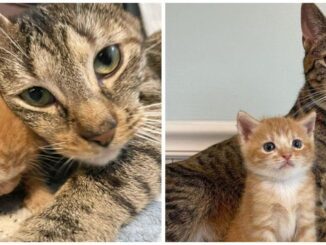
She’s a bestselling author, international model, and mother to one of the world’s most powerful tech moguls—but this week, Maye Musk is facing a storm of backlash after sharing her controversial parenting philosophy related to poverty.
In a recent interview that quickly went viral, Maye offered what she called “tough-love wisdom” about raising successful children—particularly referencing her experiences raising Elon Musk and his siblings under financial hardship. But what was meant as motivational advice sparked intense criticism online, with many accusing her of being tone-deaf and out of touch with the realities of poverty.
The Comment That Ignited the Internet
During a podcast appearance promoting her memoir and lifestyle brand, Maye Musk shared a story from her early years as a single mother in South Africa. She explained that after her divorce, she was forced to work multiple jobs while raising her three children alone.
Then came the statement that lit up social media:
“Poverty was the best thing that happened to my children. It taught them to work hard, to appreciate what they had, and to never expect handouts.”
While she later clarified that she meant “struggling financially built resilience,” the damage had already been done.
Twitter Reacts: “Easy to Say When You’re a Musk”
Critics online were quick to call out what they saw as a glorification of hardship, especially coming from someone who is now part of one of the wealthiest families on Earth.
One viral tweet read:
“Imagine romanticizing poverty when most people can’t even afford healthcare or rent. This isn’t inspiration—it’s privilege dressed as wisdom.”
Others pointed out that while Maye worked hard, she also came from a relatively educated and connected background—hardly comparable to the systemic, generational poverty millions face today.
“There’s a difference between struggling temporarily and being born into a cycle of poverty with no support. That’s not ‘character building’—that’s survival,” wrote another critic.
Supporters Say: “She’s Just Being Real”
Still, some came to Maye’s defense. Supporters argued that her intent was to emphasize grit and self-reliance, not to minimize poverty.
“She’s not saying poverty is good. She’s saying that not spoiling your kids and letting them learn from struggle can be powerful,” one user commented. “People are too quick to cancel anyone who speaks a little uncomfortable truth.”
Some parenting blogs and conservative commentators also applauded her message, calling it a “refreshing counterpoint” to modern overprotective parenting styles.
The Bigger Question: Is Poverty Ever ‘Character Building’?
The controversy around Maye Musk’s comments has reignited a broader cultural debate: Can hardship truly foster greatness? Or is this just a myth repeated by those who have already made it?
Sociologists point out that while resilience can emerge from adversity, poverty also correlates with trauma, lack of access, and generational setbacks—realities that often stifle potential rather than unleash it.
In Elon’s case, yes, he went through financial hardship—but also had access to computers, education, and eventually, powerful investors. As one commenter put it:
“The lesson isn’t ‘poverty makes you successful’—it’s ‘poverty with privilege is survivable. Poverty without it is a trap.’”


